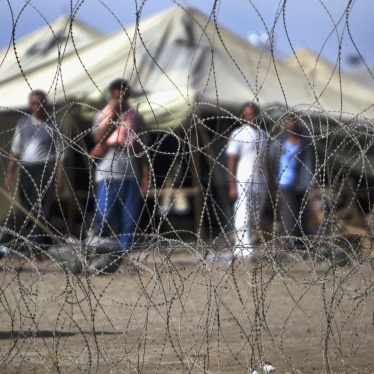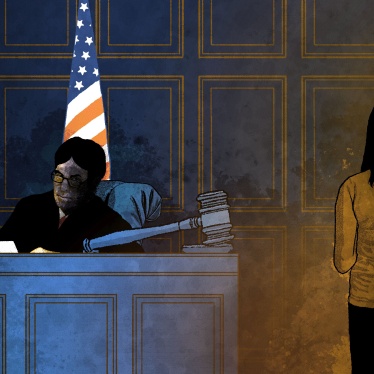Human Rights Watch applauded Maryland Governor Paris N. Glendening's decision today to impose a moratorium on executions in Maryland. Citing the need "to be absolutely sure of the integrity" of the death penalty process, Governor Glendening announced the moratorium would continue until an ongoing University of Maryland study on racial bias and the death penalty is completed and reviewed and acted upon by the state legislature.
The death penalty in Maryland, as elsewhere in the country, is plagued by arbitrariness, racial bias and the risk of executing the innocent," said Jamie Fellner, Director of the U.S. Program at Human Rights Watch. "We welcome the Governor's decision placing a moratorium on executions while there are doubts about the fundamental fairness of the capital punishment process."
Nearly 70% of those on Maryland's death row are African-American. All but one were convicted of murdering white victims, even though the vast majority of murder victims in Maryland are African-American. The most immediate effect of the moratorium is to forestall the execution scheduled for next week of Wesley Eugene Baker, an African-American.
Human Rights Watch, which opposes the death penalty in all cases, urged Governor Glendening to maintain the moratorium on executions at least until all the problems identified in the ongoing University of Maryland study are remedied. Glendening's announcement followed last month's release of a major study by the Illinois Governor's Commission on Capital Punishment, which recommended dozens of reforms to reduce the risk of wrongful conviction and execution. The Illinois commission, however, also acknowledged that no system of criminal justice can guarantee absolutely that innocent persons will not be sentenced to death.
Nine death penalty states currently have legislation pending that would impose moratoria on executions.








